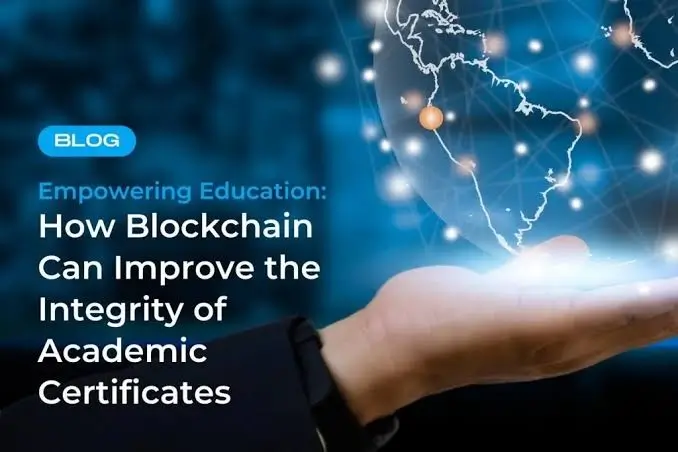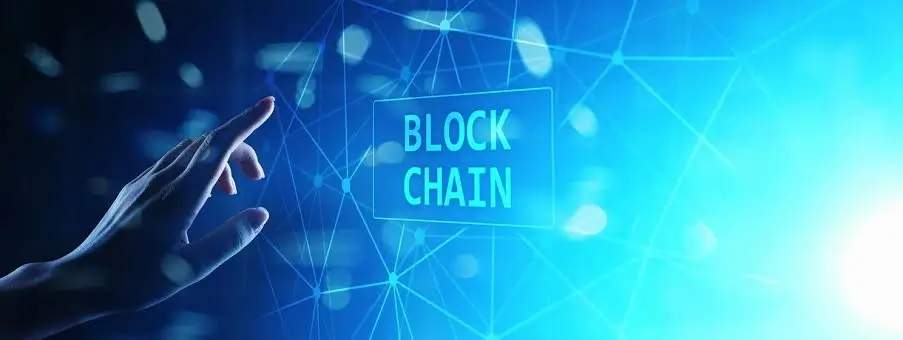Morocco is stepping up with a groundbreaking initiative that may just reshape the future of academic validation on a global scale.
At a time when the job market is increasingly threatened by counterfeit degrees and falsified academic credentials, Moroccan researchers have turned to an unlikely ally: blockchain technology. The aim? To put an end to diploma fraud once and for all, using a decentralised solution that ensures authenticity and restores trust in education systems.
And it’s not just theoretical — the project is already in motion within academic institutions.

Morocco Turns to Blockchain to Tackle Diploma Fraud in Education ( Image Source: Intellinez Systems )
How Blockchain is Entering Moroccan Classrooms
A team of researchers at ENSIAS (National School of Computer Science and Systems Analysis) in Rabat has developed a functional blockchain model for academic record verification.
Their mission is simple yet transformative:
Create a transparent, immutable system for issuing and verifying credentials — without the red tape.
This new system allows diplomas to be stored securely on a public blockchain. Once issued, they become:
- Tamper-proof and impossible to forge
- Instantly verifiable from anywhere in the world
- Accessible to students and employers 24/7
In essence, it slashes verification times from weeks to seconds — and removes the opportunity for manipulation.
The Fraud Epidemic Morocco is Tackling
Diploma fraud isn’t exclusive to Morocco. It’s a widespread problem affecting employers, governments, and institutions across continents.
Fake academic documents are used to land jobs, scholarships, and visas — undermining real qualifications and eroding institutional trust. In Morocco, the problem has worsened due to the rise of online scams and diploma mills.
This blockchain initiative represents Morocco’s proactive attempt to safeguard the integrity of its education system before the problem spirals out of control.
How It Works: From Graduation to Verification
This system replaces traditional paper certificates and vulnerable databases with blockchain-based digital diplomas. Here’s how the process unfolds:
- Issuance: When a student graduates, their diploma is turned into a unique digital token and recorded on a blockchain.
- Ownership: The graduate receives a secure digital wallet that contains their credential.
- Verification: Employers or institutions can scan a QR code or use a verification tool to confirm its legitimacy within seconds.
Thanks to blockchain’s inherent immutability, once a diploma is on the chain, it can’t be changed or faked. That’s a game-changer for credential validation.
Benefits for All Stakeholders
The value of this innovation isn’t limited to fraud prevention — it enhances the academic ecosystem across the board.
For students:
- No fear of losing a physical certificate
- Seamless international recognition
- A lifetime credential that can be accessed globally
For employers:
- Instant verification of qualifications
- Reduced recruitment risks
- No need for paperwork or long authentication processes
For academic institutions:
- Lower administrative overhead
- Boosted credibility and global competitiveness
- Stronger trust from partners and employers
This isn’t just digitisation — it’s a smarter, safer way to manage education credentials.
More Than Just Diplomas
While diplomas are the current focus, the Moroccan model has broader applications. It could soon be used to secure:
- Academic transcripts
- Certificates of participation or completion
- Professional qualifications
- Short courses and continuing education records
Imagine a system where every academic milestone is recorded on-chain, traceable and trustworthy. It’s not futuristic — it’s unfolding now.
A Global Signal
Though countries like Singapore, Germany, and the U.S. have explored blockchain in education, actual implementation has been limited.
Morocco’s leap into blockchain deployment makes a strong statement to the global community: solutions to credential fraud exist — and they’re scalable.
As edtech continues to grow, decentralised systems like this may well become the standard for academic transparency.
Challenges Still Ahead
Of course, integrating blockchain into academia is not without its challenges:
- Digital literacy and access: Not all students may have access to digital wallets or smartphones.
- Privacy concerns: Protecting sensitive student data will be crucial.
- Global interoperability: Creating universally accepted standards remains a work in progress.
Despite these hurdles, Moroccan researchers are confident that the long-term benefits will outweigh the short-term barriers — and initial trials show encouraging results.
Looking to the Future
Morocco’s bold experiment could very well become a model for the rest of Africa — and beyond. As blockchain expands beyond finance into education, logistics, and HR, this innovation shows that academic systems can be modernised in a way that’s secure, efficient, and future-ready.

Paving the Way Forward ( Image Source: CoinGeek )
The Moroccan initiative illustrates how blockchain, when applied with purpose, can address real-world problems — and restore faith in academic systems.
Final Thought
While blockchain is often tied to cryptocurrencies and digital finance, its real-world utility goes much further. In Morocco, it’s being used to safeguard something far more meaningful: the credibility of education.
By marrying decentralised technology with academic integrity, Morocco is doing more than just fighting fraud. It’s building a smarter, more transparent future for global education — one credential at a time.

